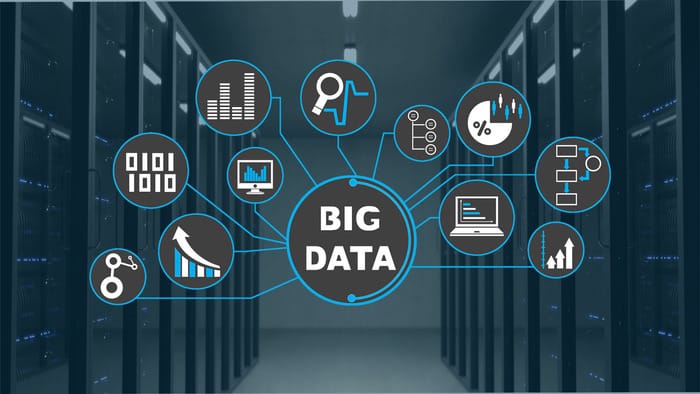In the last few decades, the amount of data that mobile devices generate has increased monumentally. The availability of this data has necessitated the creation of specialized formulas and tools to store, sort, analyze, and dispense large pockets of information. This has, in turn, given rise to Big Data. Big Data has wide-ranging applications, including in AI, machine learning, and predictive analytics. And, all of these technologies play a crucial role in mobile app development. Here is a closer look at exactly how the mobile app development industry is utilizing Big Data.
What Is Big Data?
Big Data technology deals with the collection, storage, manipulation, and analysis of large pockets of data containing great variety and arriving in increasing volumes and with higher speeds. The data is so large and complex that it cannot be handled through traditional data processing tools.
The data sets collected through Big Data technology have far-reaching impacts on many industries. They allow the identification of trends that would have otherwise been “invisible” in small data groups.

Predictive Analytics
According to a Bloomberg report, the Big Data Analytics market will grow by 15.3 percent by 2028 as more companies harness its power. Mobile app developers currently use predictive analysis powered by big data to identify trends and patterns in in-app user behaviors. By analyzing large datasets about how users behave online, developers can enable their apps to provide personalized and useful suggestions. Entertainment apps for instance can use this technology to recommend TV shows, music, or movies their users might enjoy based on their viewing history.
Real-Time Analytics
Real-time analytics is very similar to predictive analytics except it analyses datasets to provide useful information in real time. This information gives app developers insight into how users are interacting with their app in real time, allowing them to fix problems as soon as they arise. In gaming, developers of casino apps available in Australia can use real-time analytics to adjust the game difficulty as players play. This may help keep players engaged for longer. Big Data can also help developers identify and fix bugs and lag in real time for a more streamlined experience.
Service Personalization
Service personalization is arguably the most exciting consumer-facing benefit of Big Data. Mobile app developers use the data consumers create every time they use their apps to develop user profiles. Through these profiles, developers can create and suggest experiences customized to a user’s preferences. In a casino app, for instance, data showing you prefer card games can be used to optimize your homepage to display the latest poker tournaments, blackjack games, and the like. This helps keep consumers engaged and improves retention rates for app developers.

Consumer Knowledge
For new mobile app developers, Big Data can help make the creation process more guided. Data collected from consumers in a certain genre can give developers insight into what users want from similar or new apps. This is a key step towards app development because it helps developers create a product that consumers actually need.
Wrapping Up
Big Data has the capacity to significantly transform different industries by supporting innovation and better decision-making. In the mobile app development sector, Big Data can provide better insight into what consumers want and are responding positively to. This will help developers better meet consumer needs and consumers better enjoy mobile apps. It is the perfect win-win situation as long as developers can find a way to deal with data security concerns.